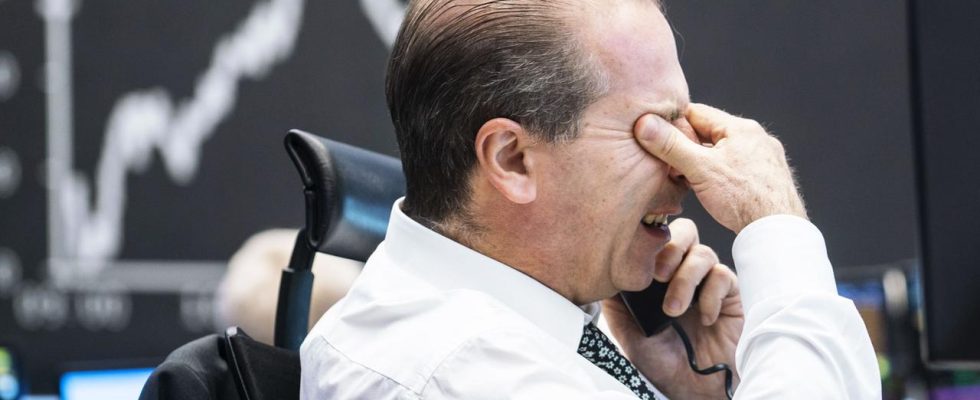market report
The surprising interest rate hikes by the central banks in Australia and Canada have unsettled investors: will the Fed now also cancel the interest rate pause it had hoped for? The DAX is facing new losses.
Uncertainty about the future monetary policy of the Fed is likely to mean that investors today should only touch equities with keen fingers. After yesterday’s slight drop in price, a new round of losses for the leading index DAX is looming on the Frankfurt Stock Exchange. The broker IG assesses the 40 German standard values 0.3 percent lower at 15,907 points.
The leading German index thus bounced back further from the hurdle at 16,000 points. Should the DAX now slip below yesterday’s daily low of 15,910 points in regular XETRA trading and close the downward price gap from last Friday (lower edge at 15,863 points), the downward momentum on the German stock market would intensify further. The next important stop zone for the leading German index would then be at 15,700/15,600 points.
Negative targets for DAX trading come from the US stock exchanges, renewed interest rate fears weighed on technology stocks in particular. The technology-heavy Nasdaq lost 1.3 percent yesterday to 13,104 points. The broad S&P 500 fell 0.4 percent to 4268 points. The Dow Jones index of standard values, on the other hand, closed 0.3 percent higher at 33,665 points.
Investors are counting on the Fed keeping interest rates stable at next week’s meeting, analysts at Citigroup wrote. “However, monetary policy in other countries highlights both the economic danger of a premature pause and the risk of ‘surprise’ interest rate hikes in response to resurgent inflation.”
Because of increasing price pressure, Canada’s central bank raised its key interest rate to 4.75 percent yesterday – the highest level in 22 years. For similar reasons, Australia’s central bank also tightened monetary policy on Tuesday.
The interest rates of the central banks are also unsettling investors on the Asian stock exchanges. The Nikkei index, which comprises 225 stocks, is 1.0 percent lower shortly before the close in Tokyo. Technology stocks in particular gave up their recent gains. The Shanghai stock exchange is down 0.1 percent.
On the foreign exchange market, the European common currency shows little movement in early trading. The euro is currently trending sideways at $1.0711. The price of gold is also treading water. A troy ounce of the yellow precious metal currently costs 1946 dollars.
Oil prices post slight losses in early trading. In the morning, a barrel (159 liters) of North Sea Brent costs 76.81 US dollars, 14 cents less than the day before. The price of a barrel of the American grade West Texas Intermediate (WTI) fell by 12 cents to $72.41. Worries about a global economic slowdown have been keeping oil prices in check for weeks.
In the DAX, the focus is on the Airbus share in the morning. Despite the recent shortage of parts, the world’s largest aircraft manufacturer delivered more commercial jets in May than in any other month since the beginning of the year. A total of 63 machines found their way to their customers. In the first five months, Airbus delivered 244 commercial jets – but that is only a good third of the annual target of 720 machines.

